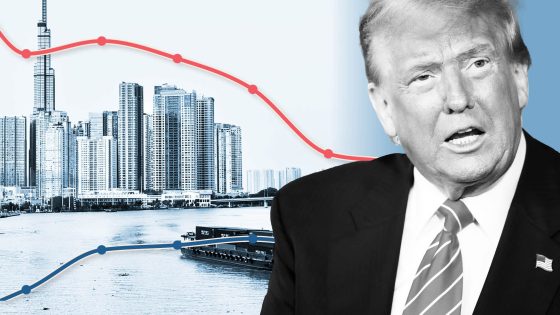Donald Trump’s ‘tariff wall’ is reshaping the economic landscape across Southeast Asia. As tensions rise, U.S. tariffs threaten to disrupt long-standing trade relationships, leaving Asian allies in a state of uncertainty. On July 9, 2025, reactions from regional leaders highlighted a growing sense of urgency.
- Trump’s tariffs affect Southeast Asian factories
- Asian allies express shock and frustration
- Malaysia seeks stronger inter-ASEAN trade
- Anwar warns of weaponized trade risks
- U.S.-Asian relationships may be strained
Reports indicate that countries like Malaysia are calling for stronger inter-ASEAN trade as they grapple with the implications of U.S. tariffs. The sentiment among Asian allies ranges from shock to frustration, raising questions about the future of U.S.-Asia relations.
How will these tariffs affect the balance of power in global trade? The implications are vast, as nations seek to navigate this new landscape. Key points to consider include:
- Potential for increased regional trade agreements among ASEAN countries.
- Heightened tensions between the U.S. and its Asian allies.
- Economic repercussions for factories reliant on U.S. markets.
- Possibility of retaliatory measures from affected nations.
As nations respond to these developments, it is crucial for businesses and policymakers to adapt strategies that prioritize resilience and collaboration in the face of uncertainty.































